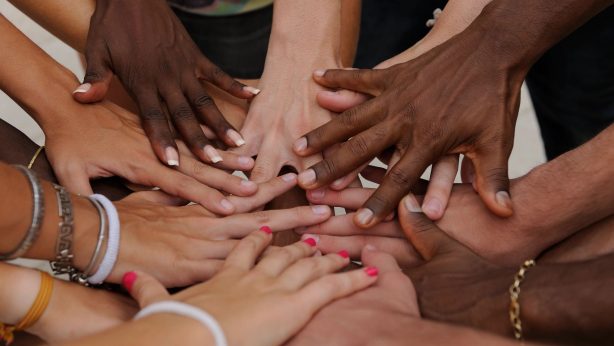Signs of Sex Trafficking: What to Look For and How to Help
Sex trafficking is a hidden crime that exists in communities across the country, often going unnoticed. But by understanding the signs and knowing what to do, you’ll be prepared to play a part in ending exploitation. In this post, we’ll explore what sex trafficking is, common signs to watch for, and how you can safely respond.
What Is Sex Trafficking and Why Is It Difficult to Spot?
Sex trafficking is a form of human trafficking. At its core, sex trafficking is the act of forcing someone into paid sex. Victims enter the sex trade through different ways but sex trafficking is always characterized by force, fraud, or coercion, or the victim is a minor.
Sex buyers and traffickers often target vulnerable people—those looking for a better life, facing poverty, or living in unsafe situations. Groups who are already at a disadvantage, like women and girls of color, LGBTQ+ youth, and immigrants, are more at risk of being exploited.
It is common for traffickers to manipulate victims through psychological abuse, financial control, or false promises of love and stability. These coercive tactics intentionally blur the lines of free choice, especially for outsiders, making it harder for them to see the difference between someone consensually selling sex and sex trafficking. This misunderstanding can prevent victims from getting the help they need. Learning to spot signs of sex trafficking is key.
Common Signs of Sex Trafficking
While each case is unique, traffickers often use similar abusive methods, resulting in recognizable patterns of harm.
Being Controlled By Someone
A controlling individual may speak for the victim, restrict their independence, monitor movements or finances, or deny access to important documents like IDs or passports. This person may be a family member, guardian, “sponsor” or “boyfriend”—often referred to as a pimp or manager in the sex trade.
Feeling Trapped In the Sex Trade
If a person wants to leave the sex trade but feels too afraid or unable to do so, it is a sign of trafficking. This may seem self-evident, but it’s worth highlighting because people often assume that those who sell sex are doing it because they want to. However, many want a way out but someone is making them stay through force, fraud, or coercion. For example, the victim may share that they were hesitant to engage in sex work but were pressured into it.
Unusual Work Conditions, Living Conditions, or Both
Working long hours without breaks or proper pay, living at their workplace, or being monitored when traveling to and from work are all signs of human trafficking, including in the sex trade. “High-risk” jobs where workers are often pressured into selling sex is a red flag too. Examples are strip clubs, unlicensed bars, go-go clubs, or illegal massage parlors.
Abusive or Unstable Home Life
People, particularly minors, living in situations marked by addiction, instability, or abuse are at higher risk of trafficking. Look for signs of physical harm like bruises, cuts, or other injuries. Teens who run away or experience homelessness are especially vulnerable.
Behavior or Appearance
Victims might show anxiety and fear. They may withdraw socially, avoid eye contact, or struggle in conversations. A victim may start using drugs or increase their drug use to cope with having unwanted sex. Signs of neglect, such as poor hygiene or malnutrition, are also common.
Alternatively, a person might get expensive clothing, makeup, or beauty services they can’t explain. They may begin spending lots of time away or with an older person or boyfriend. Their story about what’s going on may change frequently or seem rehearsed.
What to Do if You Suspect Sex Trafficking
If you suspect someone is a victim of sex trafficking, your actions can make a difference. Remember though, safety for yourself and the victim is a top priority.
- Do Not Confront the Suspected Trafficker: Confronting a trafficker can put both you and the victim at risk.
- Contact Authorities: Call the National Human Trafficking Hotline at 1-888-373-7888 or text “BEFREE” (233733). Their trained professionals can provide guidance and resources.
- Provide Information: Share as much detail as you can, such as the location, appearance, or any observed behavior. Do not attempt to investigate the situation yourself.
- Support Victims Without Judgment: If someone tells you they’re being trafficked, listen without blaming or pressuring them. Ask them what they need at that moment and offer them resources like those listed below.
- Learn More: Educate yourself on sex trafficking and address root causes. Polaris Project, The Life Story Initiative, and Freedom Network USA are good places to learn more.
Ending Sex Trafficking Starts with Awareness
By learning the signs of sex trafficking and knowing how to respond, you can play a role in protecting your community. It takes collective action to create a world where everyone is safe from sexual harm, including exploitation. If you’re ever unsure about what you’ve seen, trust your instincts and report it to a professional.
Resources for Survivors of Sex Trafficking and Allies
National Resources
- National Human Trafficking 24/7 Hotline
- 1.888.373.7888 and online chat support is available.
- Connecting callers to trained professionals who can provide survivors of human trafficking with support, safety planning, and referrals to local resources.
- Polaris Project:
- Offering in-depth resources on recognizing and combating human trafficking as well as support for survivors.
- Polaris runs the National Human Trafficking Hotline (above).
- RAINN (Rape, Abuse & Incest National Network):
- RAINN runs the 24/7 National Sexual Assault Hotline at 1.800.656.4673
- Providing crisis intervention and support for survivors of sexual violence, including those affected by trafficking.
Resources Local to Kankakee, Iroquois, and Ford County areas in Illinois.
- Clove Alliance
- Services include a 24/7 hotline at 815.932.3322, advocacy, counseling, legal assistance, and more.
- Serving survivors of survivors of sexual violence, including sex trafficking, in Kankakee, Iroquois, and Ford counties in Illinois.
- Local Law Enforcement:
This piece was published on the Kankakee Economic and Community Development Agency blog during Human Trafficking Awareness Month 2025 to help raise awareness about issues impacting our local community and available services.



